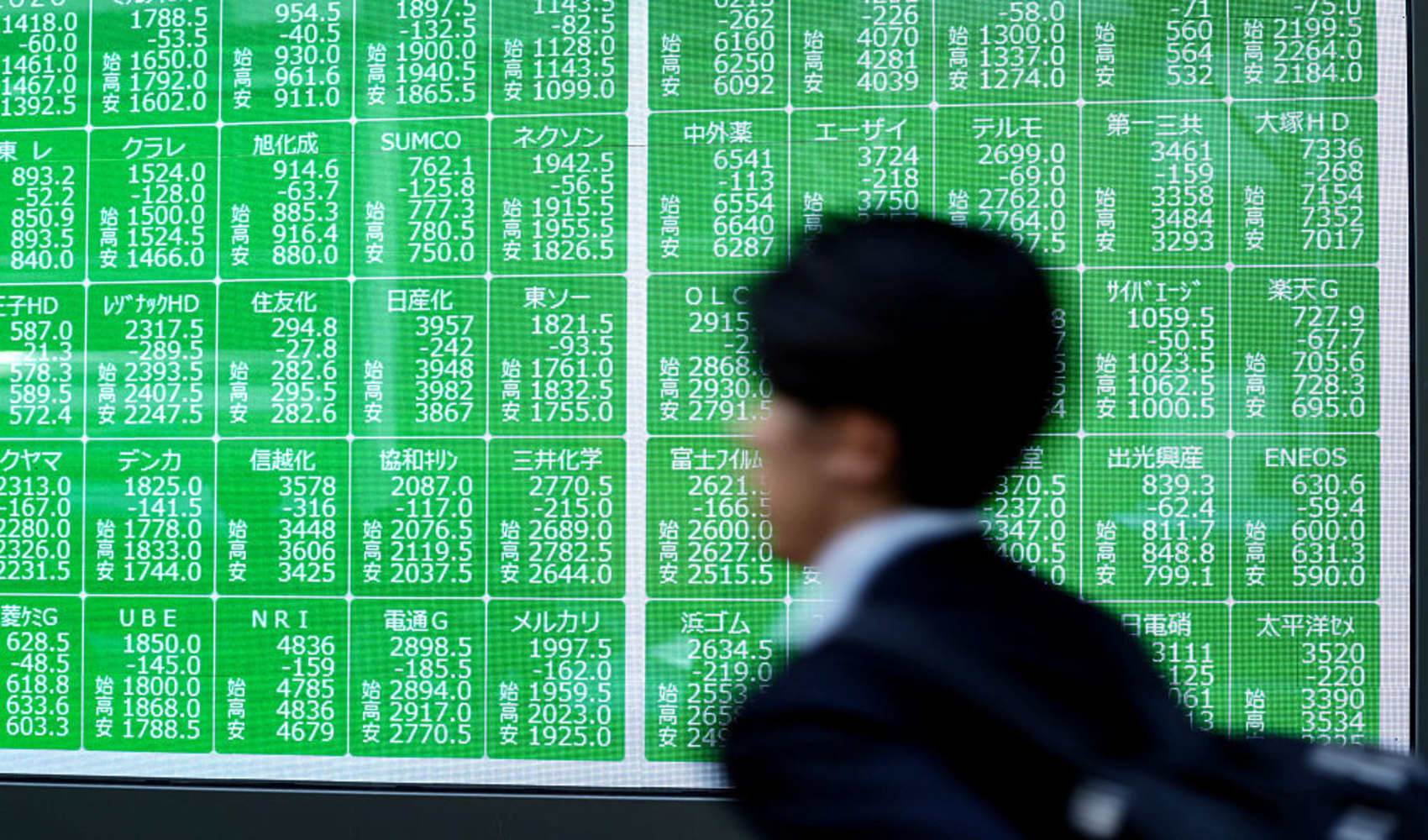Tesla Curbs Lawsuits: How It Impacts Shareholders
Tesla Tightens the Reins: Investors' Lawsuit Power Slashed
Introduction: A New Era for Tesla Shareholders?
Tesla, the electric vehicle giant helmed by Elon Musk, just dropped a bombshell that's got the investment world buzzing. Remember how a small shareholder, with just nine shares, managed to challenge Elon's hefty 2018 compensation package and actually win? Well, Tesla's putting the brakes on those kinds of David-versus-Goliath showdowns. The company has quietly changed its corporate bylaws, making it significantly harder for individual investors to sue for breach of fiduciary duties. What does this mean for you, the average Tesla shareholder? Let's dive in and unpack this game-changing decision.
The 3% Rule: A Higher Bar for Lawsuits
So, what exactly did Tesla do? They implemented what we're calling the "3% rule." Now, before a shareholder can bring a "derivative" lawsuit (a lawsuit on behalf of the company itself), they need to own at least 3% of Tesla's stock. Think of it like this: you can't even think about throwing a punch unless you're a heavyweight champion.
Why Derivative Lawsuits Matter
But what's a derivative lawsuit, anyway? Imagine Tesla's board is making decisions that are potentially harmful to the company, like lining their own pockets or making reckless investments. A derivative lawsuit is a way for shareholders to step in and say, "Hey, that's not right! We're suing you on behalf of Tesla to correct this wrongdoing." It's essentially a way to hold executives and board members accountable. These lawsuits can be powerful tools for protecting shareholder value and ensuring good corporate governance.
Musk's Compensation Package: The Case That Changed Everything
Remember that aforementioned case involving Elon Musk's 2018 compensation package? A Delaware judge ruled that the package was unfair and voided it, all thanks to a persistent shareholder with just a handful of shares. This illustrates the potential impact a single shareholder can have. The ruling highlighted the importance of fiduciary duty and the role shareholders play in overseeing corporate actions.
What Does This Mean for Small Investors?
This is the big question, isn't it? Does this new rule silence the voices of smaller investors? Essentially, yes. It raises the stakes considerably. Reaching that 3% threshold is a massive hurdle for most individual investors. This effectively limits their ability to directly challenge decisions made by Tesla's board or executives through derivative lawsuits. It’s akin to locking the front door and throwing away the key.
Tesla's Justification: Efficiency and Avoiding Frivolous Lawsuits?
Why would Tesla do this? The company likely argues that it's a move to prevent frivolous lawsuits and reduce legal costs. They might say that having a higher ownership threshold weeds out nuisance claims and allows the company to focus on its core business. It’s like saying, “We don’t want to waste time swatting mosquitoes when we’re trying to build a spaceship.”
The Argument Against: Silencing Dissent and Protecting Insiders
On the other hand, critics argue that this is a way to shield executives and the board from accountability. They contend that it creates a system where only the very wealthy can challenge corporate wrongdoing. Is Tesla prioritizing protection from scrutiny over upholding fiduciary duty? That's the question many are asking.
Delaware Law and Corporate Bylaws: The Legal Framework
It's important to remember that Tesla is incorporated in Delaware, and Delaware law governs many aspects of its corporate governance. Delaware is known for its business-friendly legal environment, but it also has well-established rules about fiduciary duty. Companies have the right to modify their bylaws, but these changes must be consistent with Delaware law and not violate the rights of shareholders. The legality of Tesla's move will likely be scrutinized.
The SEC's Role: Will Regulators Step In?
The Securities and Exchange Commission (SEC) plays a crucial role in overseeing publicly traded companies like Tesla. Will the SEC investigate this change in bylaws? It's possible. If the SEC believes that Tesla's actions are detrimental to shareholders or violate securities laws, they could take action. Think of the SEC as the financial referee, making sure everyone plays by the rules.
The Future of Tesla Shareholder Activism
So, does this mean the end of shareholder activism at Tesla? Not necessarily. Shareholders can still exert influence in other ways, such as voting on board members, submitting shareholder proposals, and engaging with management directly. However, the most direct route of redress, derivative lawsuits, has become significantly harder to access.
Alternative Avenues for Shareholder Voice
While direct lawsuits may be limited, shareholders still have a few tools in their arsenal:
- Proxy Voting: Participate actively in voting for board members and shareholder proposals.
- Shareholder Proposals: Submit proposals for consideration at annual meetings.
- Direct Engagement: Communicate concerns directly to Tesla's management and board.
- Coalition Building: Join forces with other shareholders to amplify your voice.
The Broader Implications for Corporate Governance
Tesla's move could set a precedent for other companies. If it proves successful, we might see more corporations adopting similar bylaws to limit shareholder lawsuits. This could lead to a broader shift in corporate governance, potentially reducing the power of individual investors to hold companies accountable.
The Court of Public Opinion: The Unquantifiable Impact
Even if Tesla successfully navigates the legal challenges, the company still faces the court of public opinion. How will investors and the public perceive this move? Will it damage Tesla's reputation as an innovative and forward-thinking company? Brand reputation is a fragile thing; it can take years to build, and moments to shatter.
The Long-Term Effects on Tesla's Valuation
It's difficult to predict the long-term effects on Tesla's valuation, but investor confidence could be affected. If investors believe that they have less recourse in cases of corporate wrongdoing, they might be less willing to invest in Tesla stock. Ultimately, a healthy balance of corporate accountability and investor trust is crucial for long-term value creation.
Other Companies with Similar Bylaws: Precedent or Trend?
Are there other companies that have similar bylaws restricting shareholder lawsuits? While the 3% threshold might be relatively high, many companies have bylaws that place certain limitations on shareholder litigation. Understanding the prevalence of these types of restrictions can shed light on whether Tesla's move is an outlier or part of a broader trend in corporate governance.
Conclusion: A Shift in Power Dynamics
Tesla's decision to limit shareholders' ability to sue for breach of fiduciary duties marks a significant shift in the power dynamics between the company and its investors. While Tesla may argue that this move is aimed at preventing frivolous lawsuits and streamlining operations, critics see it as an attempt to shield executives and the board from accountability. The long-term implications of this decision are still uncertain, but it's clear that the bar for holding Tesla's leadership accountable has been raised significantly. Investors need to carefully consider the implications of this change and how it might affect their ability to protect their interests.
Frequently Asked Questions (FAQs)
1. What exactly is a "breach of fiduciary duty"?
A breach of fiduciary duty occurs when a company's executives or board members fail to act in the best interests of the company and its shareholders. This can include things like self-dealing, mismanagement, or conflicts of interest.
2. Does this new bylaw completely prevent shareholders from suing Tesla?
No, it doesn't completely prevent lawsuits. Shareholders can still sue Tesla directly for certain types of claims. However, it makes it much harder to bring a derivative lawsuit, which is a lawsuit filed on behalf of the company itself.
3. Will this bylaw change affect Tesla's stock price?
It's difficult to say for sure. Some investors may be concerned about the reduced accountability, while others may see it as a positive move that will allow the company to focus on its core business. The ultimate impact on the stock price will depend on how investors perceive the change.
4. Can a group of shareholders pool their shares to reach the 3% threshold?
Tesla's filing specifically addresses this. The bylaw applies to any "shareholder or group of shareholders" acting together. So, yes, shareholders could theoretically form a group to meet the 3% ownership requirement. However, coordinating such a large group could be challenging.
5. What are the alternatives for shareholders who disagree with Tesla's management?
Even with the lawsuit restrictions, shareholders can still influence Tesla through proxy voting, submitting shareholder proposals, engaging with management directly, and building coalitions with other investors to amplify their voices and pressure the company for change.

